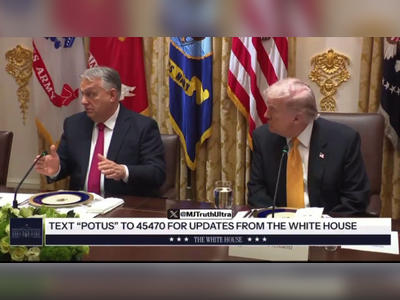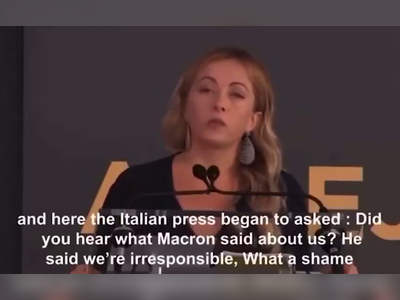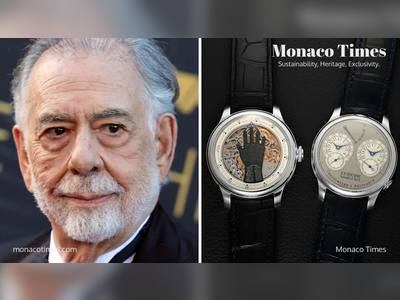
Economic Pressures Threaten Press Freedom Globally, Report Warns
World Press Freedom Index highlights significant challenges facing media worldwide amid economic and political pressures.
The annual World Press Freedom Index, released on the eve of World Press Freedom Day, reveals a troubling landscape for media and journalists, who are facing 'problematic,' 'difficult,' or 'very serious' situations in three-quarters of the 180 countries evaluated.
For the first time, the global situation is classified as 'difficult,' emphasizing the impact of economic constraints, particularly highlighted by circumstances in the United States.
Norway retains its position at the top of the index for the ninth consecutive year, while the United States has fallen two spots to 57th, ranking lower than Sierra Leone.
Reporters Without Borders (RSF) indicated that the state of press freedom was already precarious in the U.S., having dropped ten places in the 2024 index.
The editorial director of RSF, Anne Bocandé, acknowledged an aggravation of conditions since President Donald Trump’s inauguration in January, citing 'daily attacks' against the press.
The Committee to Protect Journalists (CPJ) has also noted that 'press freedom is no longer a given' in the United States, especially in its report on the first 100 days of Trump’s second term.
Under his administration, significant cuts have affected U.S. international public media such as Voice of America, leaving over 400 million people without access to reliable information, according to RSF.
Furthermore, a freeze on international aid funding via the U.S. Agency for International Development (USAID) has plunged numerous media outlets into critical economic instability, leading to closures, particularly in Ukraine, which dropped one position to 62nd.
In the U.S., 'information deserts' have emerged as numerous local publications struggle financially.
RSF emphasizes that these 'economic pressures,' while less visible than physical assaults on journalists, represent a major obstacle to press freedom.
In nearly one-third of countries worldwide, including Tunisia (129th, -11) and Argentina (87th, -21), media outlets regularly cease operations due to persistent economic challenges.
Around thirty countries have experienced 'mass closures' leading to the exile of journalists, including Nicaragua (172nd, -9) and Afghanistan (175th, +3).
The situation in Palestine (163rd, -6) is described as 'disastrous,' with RSF accusing the Israeli military of 'destroying newsrooms and killing close to 200 journalists.' Meanwhile, Haiti (112th, -18) faces chaos in its media economy due to a lack of political stability.
Overall, the media sector is being 'suffocated' by technology giants (GAFAM: Google, Apple, Facebook, Amazon, and Microsoft), whose largely unregulated platforms capture an increasing share of advertising revenue and contribute to the proliferation of manipulated or misleading content.
The freedom to inform is increasingly hindered by opaque or arbitrary funding conditions, as seen in Hungary (68th, -1), where the government deprives critical media of equitable state advertising distribution.
Even in countries that rank well, such as Finland (5th) and Australia (29th, +10), media concentration poses a threat to pluralism and remains a matter of concern.
In France (25th, -4), RSF highlights that a 'significant part of the national press is controlled by a few wealthy individuals,' raising questions about the true independence of newsrooms.
The situation of press freedom is deemed 'very grave' in 42 countries, with seven newly classified in this category: Jordan, Hong Kong, Uganda, Ethiopia, Rwanda, Kyrgyzstan, and Kazakhstan.
Eritrea continues to occupy the last position, behind North Korea and China.
RSF compiles this ranking based on a quantitative assessment of violations against journalists and a qualitative study involving experts.
For the first time, the global situation is classified as 'difficult,' emphasizing the impact of economic constraints, particularly highlighted by circumstances in the United States.
Norway retains its position at the top of the index for the ninth consecutive year, while the United States has fallen two spots to 57th, ranking lower than Sierra Leone.
Reporters Without Borders (RSF) indicated that the state of press freedom was already precarious in the U.S., having dropped ten places in the 2024 index.
The editorial director of RSF, Anne Bocandé, acknowledged an aggravation of conditions since President Donald Trump’s inauguration in January, citing 'daily attacks' against the press.
The Committee to Protect Journalists (CPJ) has also noted that 'press freedom is no longer a given' in the United States, especially in its report on the first 100 days of Trump’s second term.
Under his administration, significant cuts have affected U.S. international public media such as Voice of America, leaving over 400 million people without access to reliable information, according to RSF.
Furthermore, a freeze on international aid funding via the U.S. Agency for International Development (USAID) has plunged numerous media outlets into critical economic instability, leading to closures, particularly in Ukraine, which dropped one position to 62nd.
In the U.S., 'information deserts' have emerged as numerous local publications struggle financially.
RSF emphasizes that these 'economic pressures,' while less visible than physical assaults on journalists, represent a major obstacle to press freedom.
In nearly one-third of countries worldwide, including Tunisia (129th, -11) and Argentina (87th, -21), media outlets regularly cease operations due to persistent economic challenges.
Around thirty countries have experienced 'mass closures' leading to the exile of journalists, including Nicaragua (172nd, -9) and Afghanistan (175th, +3).
The situation in Palestine (163rd, -6) is described as 'disastrous,' with RSF accusing the Israeli military of 'destroying newsrooms and killing close to 200 journalists.' Meanwhile, Haiti (112th, -18) faces chaos in its media economy due to a lack of political stability.
Overall, the media sector is being 'suffocated' by technology giants (GAFAM: Google, Apple, Facebook, Amazon, and Microsoft), whose largely unregulated platforms capture an increasing share of advertising revenue and contribute to the proliferation of manipulated or misleading content.
The freedom to inform is increasingly hindered by opaque or arbitrary funding conditions, as seen in Hungary (68th, -1), where the government deprives critical media of equitable state advertising distribution.
Even in countries that rank well, such as Finland (5th) and Australia (29th, +10), media concentration poses a threat to pluralism and remains a matter of concern.
In France (25th, -4), RSF highlights that a 'significant part of the national press is controlled by a few wealthy individuals,' raising questions about the true independence of newsrooms.
The situation of press freedom is deemed 'very grave' in 42 countries, with seven newly classified in this category: Jordan, Hong Kong, Uganda, Ethiopia, Rwanda, Kyrgyzstan, and Kazakhstan.
Eritrea continues to occupy the last position, behind North Korea and China.
RSF compiles this ranking based on a quantitative assessment of violations against journalists and a qualitative study involving experts.









